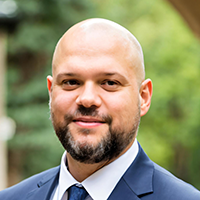· Managing Your Time · 6 min read
The Power of "No"

Recently, I ran into a problem that I solved with simply saying “No”. It was empowering and kinda freeing. And even better, my boss backed me up on this.
To simplify a long story, I was being asked to do something that was the responsibility of another team with me not being on the project. I had been helping out for awhile, but the time had come to hand it off. I met resistance from the other side to taking over the simple task. When they pushed back I simply told them “No”, that the task was theirs.
After some back and forth, they accepted the task. And all it took was an appropriately placed “No” to push things into the right direction.
About Saying “No”
In my career one of the hardest things I have had to learn is how to say “No” to someone. I like helping people. It is in my nature and I don’t want to disappoint anyone. However, the use of “No” is very important.
Throughout your career you will have people ask things of you, even when you are very busy or already have other responsibilities on your plate. They often don’t know what is on your plate or think you can just squeeze in this one “little thing”. It could be a task. It could be a meeting. Or it could be a project.
It is very easy to say “Yes”. But in doing so you could find yourself unable to fill your existing obligations or doing very poorly at them. Sometimes we overestimate what we have time for or underestimate how long something takes. In fact, I think we often underestimate the time and effort a task will take. Sometimes others do this for you and then give you the responsibility (more on this later).
The Power of “Yes”
As I said before, saying “Yes” is pretty easy. And doing so can help you a lot. It makes you more approachable. It makes people look to you for answers. You look like a doer, a team player, a get things done kinda person.
Recently, I was chatting with my boss and some other higher up managers in the breakroom casually. One of the other managers brought up something that he was struggling to find someone that could and would be willing to do. I piped up and said “I can learn that if you want”. It was some tech I had never touched before, but I am up for challenges. That impressed him. So much so that I got multiple callouts in a meeting among top leadership in the company for it.
Last year my boss was looking for someone to do some AEM work. We already had our existing AEM devs allocated and needed more horsepower. I spoke up and offered to learn AEM, which is Java-based. I come from the open source world. Mostly working in PHP but also JavaScript and the accompanying HTML and CSS related to both. I also volunteered to learn some Java with Spring Boot for updating an existing internal API tool. By doing so I have learned a lot of new things, been called a polyglot, and expanded my skillset and experience.
In short, saying “Yes” can open new doors and make you more marketable.
The Problem with “Yes”
Then there is the other side of this. In saying “Yes” I am also obligating myself to work or the use of my time that I may not have enough to give. Time is our most precious commodity. We are not just paid for our skills and labor. We are paid for our TIME because that is something that we can’t get back, ever.
When you read stories about what executives, millionaires, and billionaires care about most and are more fervent to protect the answer is that their TIME is what they protect the most zealously. For some, its about being more efficient. For others, its about not missing time with their families. But in every case their TIME is the most precious thing they have to offer.
If you are saying “Yes” to meeting, you are sacrificing your TIME. If you say “Yes” to work, you are sacrificing your TIME. Possibly time that you need to spend on other things. When you say “Yes” to overtime then you are sacrificing your TIME with your family and friends.
This extends to outside work as well. Whether it be freelance you do on the side or helping others out. You are giving up time you could be spending doing things for yourself or with your family. In doing so you have to make sure the exchange is worthwhile.
In fact, that is part of why many people recommend spending less TIME at work. In 20 years who is going to remember those overtime hours you spent on this project we have all forgotten about? Your employer, assuming you still even work for them, or your family? It will be your family of course and they won’t remember it as success. They will remember it is TIME they missed with you.
Protecting Your Time, The Power of “No”
Given all these problems with saying “Yes” you would think we would be better at saying “No”. But most of us suck at it and we end up wasting a lot of our TIME. Instead, we should protect our time with the same zeal and executives and the wealthy. This means learning to say “No” to things you don’t have TIME for. It also means learning to recognize when we should say “No”, which can be very hard to do.
What I have learned is that I need to really think about how long something “should” take me and then imagine how much longer it “could” take me. I can give many examples of this, especially at work, we developers are notoriously terrible at estimates. The point is that you need to plan for the unknown and then allocate your time accordingly.
What Should You Do?
If you are in a crunch DO NOT add anything more to your plate. If you have lots going on DO NOT add more to your plate. If you just need time to relax DO NOT add more to your plate.
You can say “No, BUT” and follow that up with a different time to do it or direct to someone else that might have the time for it. Saying “No” does not mean you shirk responsibilities. It means you set better expectations, including bringing in more help or deferring tasks or redirecting to someone else.
You should also make sure that any estimates on your time are made by you and not others. This is crucial for many reasons. Level of effort is difficult for most people to judge for complex projects. Even more so someone else’s level of effort.
Regardless of where your time goes, you should plan for it, watch it, and protect it. Time is the one thing we can never get back. Appreciate all of it and optimize it the best you can.
